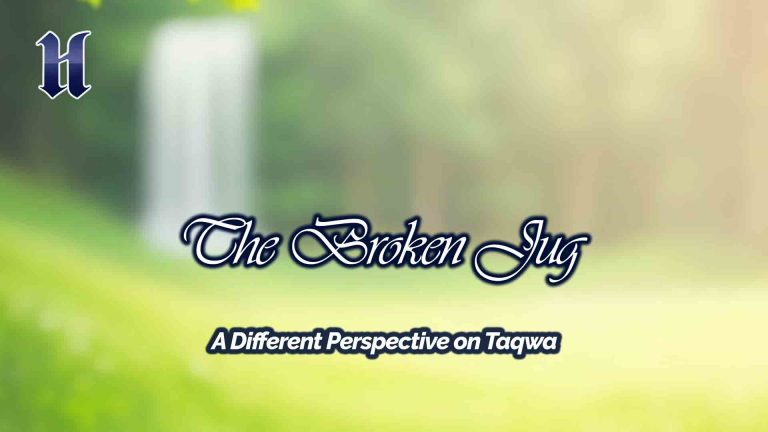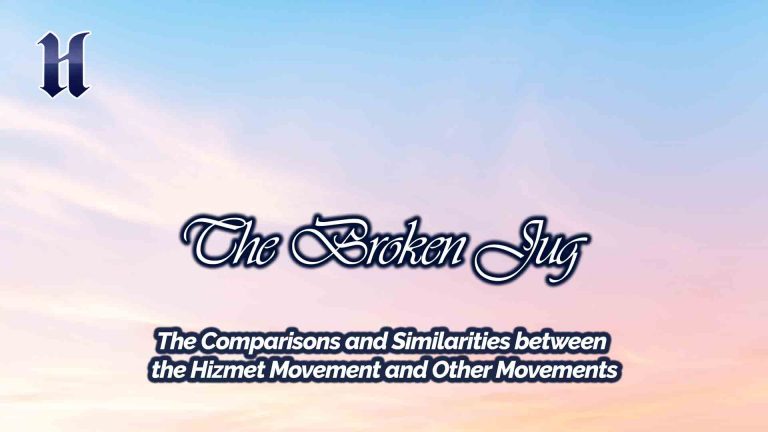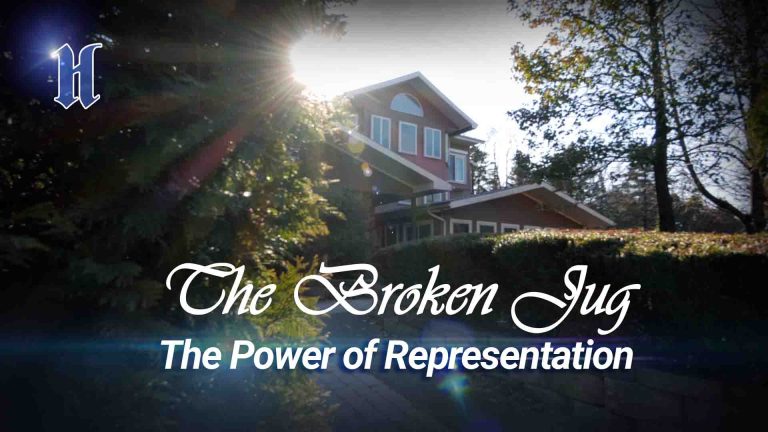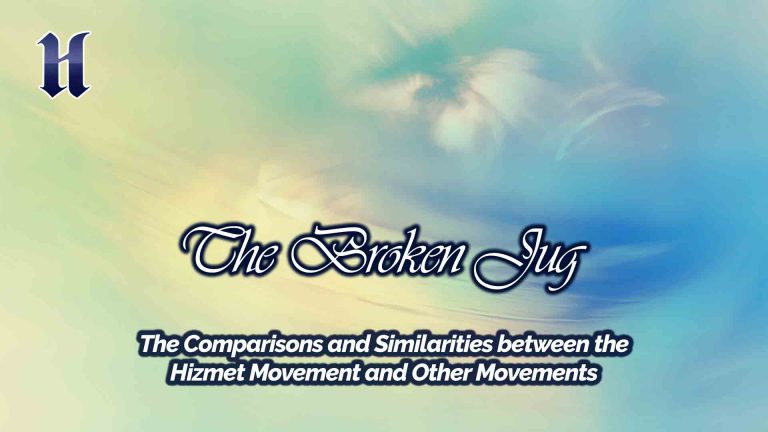İçindekiler
It is of great importance for a person’s inner world to be illuminated by Divine lights (anwâr-ı ilâhiyya). A person whose inner world is not enlightened by the rays of The Almighty, Nur al-Anwâr, is condemned to darkness, and over time, this darkness will shroud their entire horizon. Even if the roads they walk on are lined with torches and spotlights, such a person will still stumble, tripping over obstacles. A person whose inner world is dark and tainted will have feelings, thoughts, words, and behaviors that are shaped accordingly. In such a state, the heart falls, and the soul becomes aimless. In this case, the person cannot even realize the darkness they are living in and falsely believes they are still wandering in an illuminated climate, but they are deceived.
God, in His mercy, has sent Prophets and Scriptures to guide humanity from darkness to light. Many have run toward this light and embraced it. However, some of them have gradually distanced themselves from this light for various reasons and excuses, condemning themselves once again to darkness. Since the time of Adam (peace be upon him), even among those who lined up behind Prophets, there have been those who have faltered along the way. The number of those who, after entering the luminous atmosphere of the great Prophets, turned back and became victims of darkness once more is too numerous to count. These darkened souls, having fallen away from the Divine light, eventually became entangled in worldly desires, bodily pleasures, wealth, and property, ruining both their worldly and otherworldly lives.
In the years following the Age of Happiness (Asr-ı Saadat), some who had sat knee-to-knee with Prophet Muhammad, the Pride of Humanity (peace and blessings be upon him), and prayed behind him, tragically succumbed to the whirlpool of abandonment and renunciation of religion (irtidat). It is important not to confuse these individuals with hypocrites. They were not hypocrites; they had faith. But somewhere along the way, they became dizzy, their vision blurred, and while walking a straight path, they veered off onto side trails and fell behind.
Often, a person cannot perceive the darkness within their inner world. They fail to notice the zigzags they trace on the path they walk. The ability to see one’s deficiencies and flaws is only possible by confronting oneself and engaging in a serious self-reckoning. Therefore, it is crucial to constantly seek steadfastness and always seek refuge in God from slipping and stumbling.
One of the most frequent supplications of the Messenger of God (peace and blessings be upon him) was: “O Allah, the Turner of hearts! Keep my heart firm upon Your religion”.[1] While this prayer could be seen as a personal request from him, as someone closest to God, for his own inner state, I believe it is more appropriate to understand it as a lesson and reminder for his community, in line with his role as a guide. In this regard, the Prophet’s prayer conveys the following message to us: “If even I make such a request from God every day, you should take heed and strive to live a life of utmost care for steadfastness.”
The Perpetual Cycle of Historical Recurrences
Those who walk relying on the power and strength of God have never stumbled or faltered along the way, even under the harshest conditions. Neither the alluring beauties of the world nor the oppression of tyrants could deter them from their path. On the contrary, as circumstances grew more challenging, they only increased their pace, deepened their sincerity, forgot themselves, and held fast to the essential dynamics that should never be forgotten. Those who remained steadfast until the end triumphed, while those with weak spiritual immunity could not withstand the pressures and bowed to the tyrants, ultimately losing. Although they may have gained temporary relief in this world by breathing a few breaths of comfort, in the Hereafter, they will not escape the reproach of God: “What harm did you see in walking My path that made you bow to the oppressors?”
Indeed, in the perpetual cycle of historical recurrences, what happened yesterday continues to happen today. God’s unchanging laws apply to all societies. The struggle between Faust and Mephisto[2] has persisted since the time of Prophet Adam. Believers who have a firm faith in God and hold tight to it continue to walk the path they believe in, regardless of oppression, persecution, or deprivation. In contrast, those who suffer from weak faith are poisoned by power, authority, rank, and worldly pleasures, stumbling along the way. They go so far as to use the very values they once believed in as a means to their earthly reign. They act with Machiavellian motivations, focusing solely on their own interests, and even justify their oppression and cruelty through religion. In the name of loyalty to the idols they have transformed into altars, they subject people to unimaginable torment and suffering.
Indeed, the phenomenon of stumbling on the path has been a sad reality in every era of history, but we would not be wrong to say that the danger is even greater today. In our time, where egoism has become rampant, love for the world intoxicates people, and worldly life is deliberately and willingly preferred over the life of the Hereafter, humanity faces a grave threat. The allure of worldly pleasures, the lust for power and authority, spins the heads of many, poisoning them. These individuals may attend the mosque, perform prayers, and fast, but they carry no true faith in the Hereafter or concern for accountability within. Their sole concern and cause is to perpetuate their own pomp, splendor, and dominance. Such people display hypocritical behaviors, lie without hesitation, and deceive others with ease. They either entice those they see as obstacles to their reign with worldly promises or do not shy away from subjecting them to all kinds of oppression.
On the devilish path they tread, they would even choose to crush an angel standing in their way to secure their safety. Out of fear that their short worldly life might be overshadowed, they darken the lives of innocent people. At times, they act like bandits, seizing the property of those they have declared enemies; at other times, they deprive them of their freedom. Unfortunately, those whose spiritual immunity is not strong enough are also swayed, changing their direction in the face of such fitna (tribulation).
Winners and Losers
The duty of sincere believers is to remain steadfast on the path they believe to be right, enduring with patience the oppression and injustices inflicted upon them for their values. Today, we witness thousands of examples of this. Praise be to God that, both men and women, our brothers and sisters [of the Hizmet movement] have bravely demonstrated their loyalty and fortitude toward the values they believe in, without wavering under pressure and domination. They did not submit to the oppressors. They met the verdicts of conviction with a smile and walked to the prisons with joy. Through their acts of worship and remembrance of God, they turned prisons into sanctuaries, into schools of spiritual retreat. Even in places where one would expect to lose, they have managed to achieve great gains. After all, have not the oppressed and wronged always been the true victors, while the oppressors and tyrants have been the real losers? The tyrants, who have exploited the people, seized their wealth, and committed every form of cruelty out of paranoia and delusions, have turned their own worlds—and inner selves—into dark, miserable prisons.
However, there have also been those who, after cursing the righteous path they walked on, turned to support oppression and applauded the tyrants. These individuals signed papers placed before them and falsely accused innocent people in the name of confessions. By doing so, they portrayed the good deeds they had performed for the sake of their religion, homeland, fellow country people, and humanity as if they were crimes. Regardless of their intentions, those who believe they are confessing to a crime that does not exist are, in fact, committing slander. And there is no doubt that slander is one of the gravest sins. Furthermore, if they see no wrong in the sin they are committing, the situation becomes even more dangerous. These people, who defame and slander the innocent, may darken their Hereafter, all while trying to save their worldly lives without even realizing it.
Some sincere believers think that by appearing favorable to the oppressor, by siding with him, and by maintaining a relationship with him, they can secure their safety and free themselves from danger. However, tyrants are capable of outwitting even Satan himself. They know their counterparts very well and can read their intentions and thoughts. They fully understand that betrayers who turn on their own friends cannot be trusted. Moreover, they are paranoid by nature, afraid of everything. They are unwilling to take even the smallest risk. They fear that those who betray their friends today might become a threat to them tomorrow, potentially jeopardizing their own safety. Hence, once they have used these individuals for their purposes, they will ensure that they are dealt with as well.
Seeking to appease those who worship the world and exploit religious values for personal gain, listening to their words, trying to please them, apologizing to them, and complying with their demands is an enormous misfortune and a grave sin. Throughout history, has there ever been a great figure who supported the cause of God, who, after enduring the oppression and suffering due to their faith, ever apologized to the tyrants? We must never forget that facilitating the cruelty of an oppressor is itself a form of oppression. Helping those who commit injustice in their actions, providing them with means and opportunities, is a type of tyranny. On the other hand, making life difficult for the oppressor, denying them opportunities, is considered a form of worship.
Remaining Steadfast on the Path
It is for this reason that those who prevail or win, both in this world and the Hereafter, are those who remain unwavering on their path, standing firm even in the face of hardship. Those who endure oppression and suffering for the sake of their cause will ultimately succeed. The Qur’an captures this beautifully: “Our Lord, do not let our hearts deviate after You have guided us.”[3] Similarly, we must grasp the wisdom of continually seeking God’s guidance on the Straight Path in our prayers. Once a person understands this, they will learn to endure whatever challenges come their way, never altering course due to the oppression of tyrants.
This profound truth is reflected in the stories of the Prophets. These exalted figures patiently endured every form of attack and torture with unwavering determination. When we look at the life of the Messenger of God (peace and blessings be upon him) and his noble companions, we see the immense hardships they faced for the sake of God, and the eventual triumph they achieved. Idolaters tortured them, laying them on burning sands, placing heavy stones on them, imprisoning and boycotting them, yet none of these trials could force them to abandon their path. In the end, the oppressors lost, and the believers emerged victorious.
Patience is the mysterious key to salvation. Whoever endures with patience will eventually attain victory. One must learn to bear hardship just as the early believers who endured the boycott in the Valley of Abu Talib (Shi’b Abi Talib[4]) did. We should take inspiration from figures like Bilal and Ammar, who, despite being laid on scorching sands under heavy stones, remained steadfast on the path of the Messenger of God. The People of the Ditch (Ashab al-Ukhdud[5]) also serve as an example, staying true to their faith even when bloodthirsty tyrants threw them into fire-filled trenches for their belief in God. Wavering brings no benefit but leads to the loss of much.
[1] Tirmidhi, Qadar 7; Ibn Majah, Dua 2.
[2] Mefisto (Mephistopheles): The chief devil in medieval texts and later literary and operatic works, to whom Faust (Faustus) trades his soul or sacrifices his spiritual values in exchange for power, knowledge, or material gain.
[3] Surah Al-Imran, 3:8.
[4] ‘Shi’b Abi Talib’ is a valley between the Mount Abu Qubays and the Mount Khandama in Mecca. When polytheists of Mecca declared an economic and social boycott on Prophet Muhammad ﷺ, Banu Hashim and Muslims, It was in Shi’b Abi Talib they lived for three years under blockade.
[5] The aṣ’ḥābu l-ʿukhdūdi (People of the Ditch) is a story mentioned in Surah Al-Burooj of the Qur’an. It recounts the tragic fate of believers who were thrown into a ditch and set on fire by King Dhu Nuwas of Himyar for their unwavering faith in Allah over 2,000 years ago, at what is now the Al-Ukhdud archaeological site in Najran, southern Saudi Arabia.






